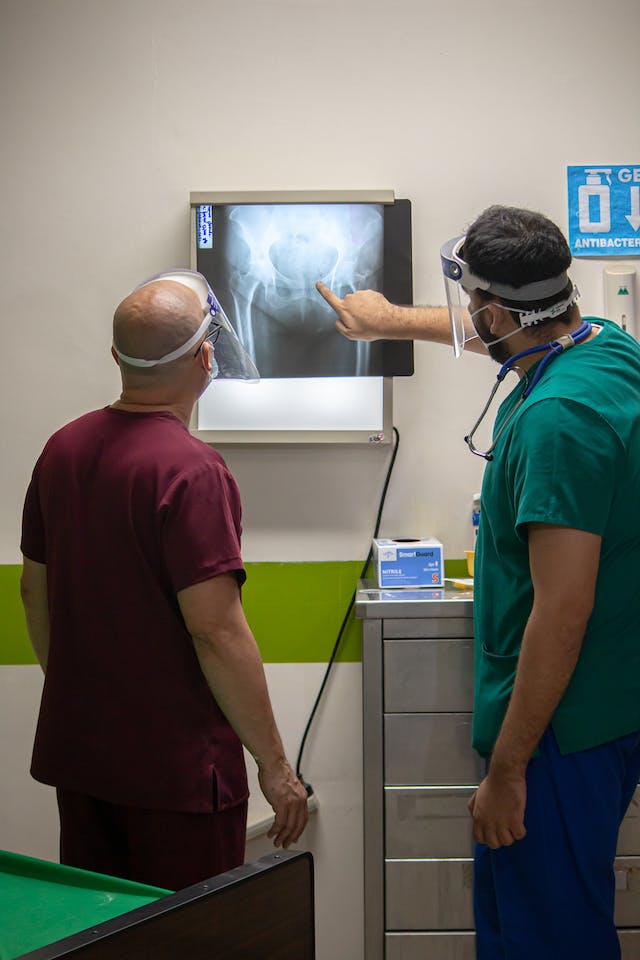Understanding the complexities of proving medical negligence within the legal realm is a matter of great significance. In cases of alleged medical malpractice, individuals or their families must bear the onus of demonstrating that healthcare providers failed to meet the requisite standard of care, resulting in harm.

This intricate process necessitates a deep comprehension of the legal landscape, which is significantly bolstered by the involvement of medical negligence specialists.
This article delves into the multifaceted world of establishing medical negligence claims, highlighting the critical elements that define the burden of proof and the indispensable role played by expert witnesses. As it navigates through the intricacies of this subject, you will gain an understanding of how plaintiffs can secure justice in the face of medical malpractice allegations. In this context, the contribution of medical malpractice specialists cannot be overstated, as they possess the expertise to guide individuals through these challenging legal waters.
Understanding the Burden of Proof
In cases of medical negligence, it is the plaintiff who holds the burden of proving their claim. Any errors in spelling, grammar, and punctuation have been corrected. To establish a case, it is necessary to demonstrate that the healthcare provider violated their duty of care, resulting in harm. This duty is rooted in the healthcare provider’s obligation to deliver treatment by accepted standards. A deviation from these standards becomes the foundation for negligence claims.
Successfully proving medical negligence necessitates the establishment of four key elements:
Duty of Care: Healthcare providers ensure their patients’ safety and well-being. It includes the duty of care owed by the healthcare provider to the patient. Typically, this duty arises from the doctor-patient relationship.
Breach of Duty: The medical provider must be proven to have breached the duty by failing to meet the accepted medical standards. It often demands the expertise of professionals who can testify to these standards.
Causation: The connection between the breach of duty and the patient’s injuries or harm must be firmly established. It frequently entails medical experts establishing a direct link between negligence and harm.
Damages: Evidence of the damages suffered due to negligence must be presented. It can include physical injuries, emotional distress, medical expenses, and lost wages.
The Role of Expert Witnesses
Expert witnesses are critical in medical negligence cases, primarily in establishing whether a breach of duty occurred. Typically, these individuals are seasoned medical professionals who can offer expert opinions regarding the standard of care and whether the defendant’s actions deviated from it.
These witnesses often include doctors, nurses, or other healthcare practitioners well-versed in the specific field of medicine pertinent to the case. Their testimonies are essential for aiding the court and the jury in comprehending complex medical issues and determining if the defendant’s actions constituted negligence.
Expert witnesses provide impartial opinions and offer invaluable insights into the case. Their testimonies carry significant weight and can profoundly influence the trial’s outcome. Without these expert witnesses, it can be arduous for plaintiffs to substantiate that the healthcare provider’s actions constituted negligence.
Challenges and Considerations in Presenting a Strong Case
Constructing a robust medical negligence case is fraught with challenges. Plaintiffs and their legal representatives must navigate several complexities to secure a favourable outcome. Key challenges and considerations include:
Gathering Evidence: Proving medical negligence necessitates copious documentation, including medical records, expert opinions, and witness testimonies. The process of collecting and organising this evidence can be a daunting task.
Establishing Causation: Demonstrating a direct link between the breach of duty and the harm endured can be intricate. Expert witnesses play a pivotal role in establishing this connection.
Defensive Strategies: Healthcare providers and insurers often employ assertive defence strategies to evade liability. It may involve challenging the credibility of expert witnesses or disputing the severity of the damages.
Statute of Limitations: Plaintiffs must be vigilant regarding the statute of limitations governing medical negligence claims. Failing to adhere to the specified timeframe can result in the dismissal of the case.
Settlement Negotiations: Many medical negligence cases are resolved outside of the courtroom. Plaintiffs must carefully evaluate settlement offers to determine whether they adequately compensate for the damages sustained.
Role of Reputable Medico-Legal Law Firms
Effectively navigating the intricacies of a medical negligence case necessitates the expertise of legal professionals specialising in this domain. Reputable medico-legal law firms possess a profound understanding of the nuances of medical malpractice claims and can offer invaluable support to plaintiffs.
These law firms typically maintain a network of expert witnesses and possess resources essential for constructing a formidable case. They can assess the merits of a case, guide plaintiffs through the legal proceedings, and negotiate on their behalf. Engaging experienced attorneys significantly enhances a plaintiff’s prospects of prevailing in a medical negligence claim.
Conclusion
In medical negligence claims, the burden of proof and reliance on expert witnesses stand as pillars upon which justice is pursued. Establishing the breach of duty, causation, and the resultant damages requires a meticulous presentation of evidence. Throughout this journey, medical negligence specialists are instrumental in leveraging their knowledge to clarify complex medical matters.
As this exploration concludes on this critical subject, it is abundantly clear that proving medical negligence is a formidable undertaking. However, with the support and guidance of medical malpractice specialists, individuals and their families can confidently deal with the intricacies of the legal system. These experts provide the expertise needed to ensure that healthcare providers are held accountable for any deviations from the standard of care, ultimately securing justice for those who have suffered harm due to medical malpractice.
Related Posts:
- Useful Tips on Protecting Your Legal Rights Against Medical Negligence
- How To Get Compensation For A Medical Negligence On Your Child
- A Look At The Different Types Of Medical Malpractice Cases an Attorney Can Help With
- How To Deal With Errors Made By Medical Professionals Which Affected Your Family
- How Spinal Cord Injuries Can be Caused by Medical Malpractice